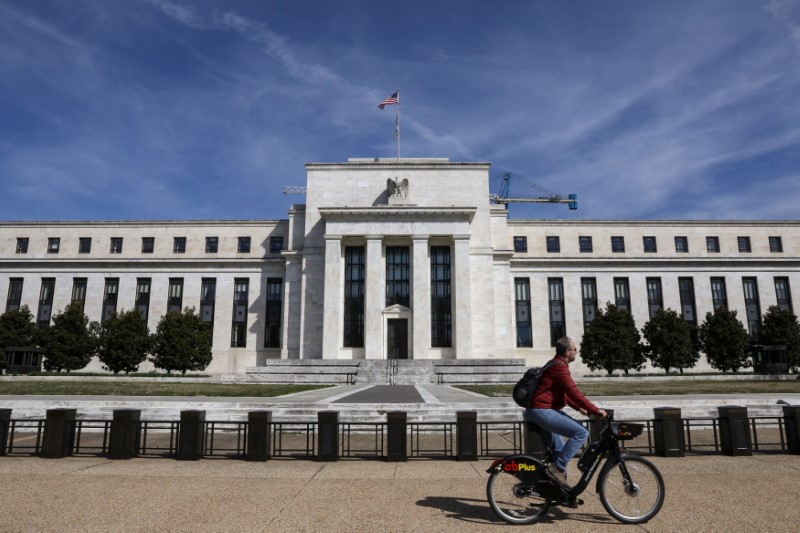By Trevor Hunnicutt
The Federal Reserve may need to buy more government bonds than it did before the 2008 financial crisis and conduct other money-market operations to implement its current approach to managing U.S. interest rates, an official of the New York Fed said on Wednesday.
The Fed this year decided to indefinitely manage short-term interest rates by tweaking the interest it pays banks on excess money they keep at the central bank using a process that requires the Fed to keep more bank capital on hand than it did prior to the global financial crisis.
After the crisis, the Fed bulked up its holdings by buying Treasuries using bank reserves it created. Eventually it started letting bonds and reserves decline to bring policy back to normal.
In March, Fed officials decided to stop letting those bond holdings decline by September. To keep control of rates, officials will eventually have to start buying bonds again and building up bank reserves.
“The size of these purchases will need to be larger than similar pre-crisis operations,” in part because the Fed’s other liabilities – including paper currency and the U.S. government’s accounts – are bigger, Lorie Logan, an official at the Federal Reserve Bank of New York, said in a speech at an event in New York. The purchases would be "gradual and mechanical," she said.
Logan is the head of market operations monitoring and analysis at the New York Fed, which implements the Fed’s monetary policies by trading in the market and managing the central bank’s portfolio.
She said the possibility of the Fed's adopting a program that would let banks convert Treasuries to reserves on demand, known as a standing repo facility, is a discussion "really in its early stages."
In recent weeks U.S. banks have occasionally paid more to borrow reserves from each other than what the Fed pays.

But Logan said bank reserves are currently ample enough that the central bank can still manage interest rates well. Bank borrowing rates that are stable and modestly above the interest paid by the Fed does not indicate an insufficient supply of reserves, she said.